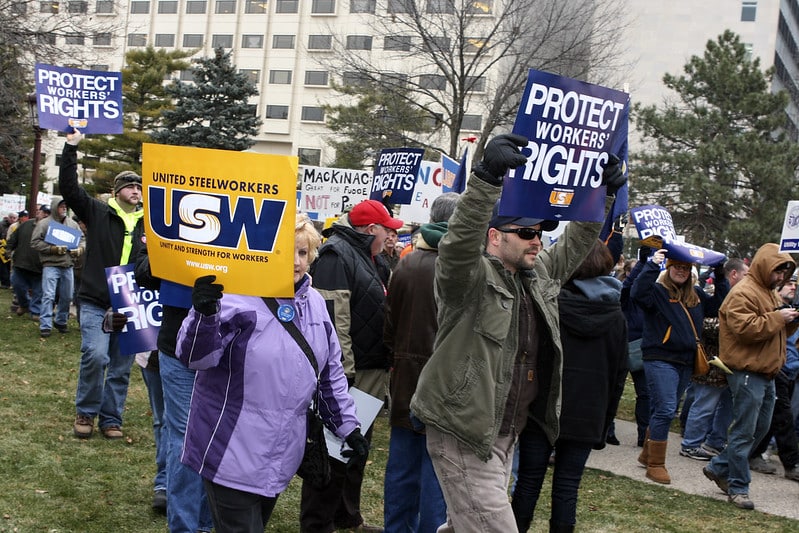All Categories
Allied Approaches
Free Speech Zone
From AFL-CIO
From Campaign for America's Future
From Center for Working-Class Studies
From the News
From the USW International President
From USW International Officers
Uncategorized
Union Matters
Videos
All Tags
#USWMade
Action Call
AEWC
affordability
AFL-CIO
Ahlstrom
Alcoa
Alliance for American Manufacturing
Alliance for Retired Americans
American Rock Salt
Arizona
ATI
Atomic
Atomic Energy Workers Council
Balancing the Scales
Better in a Union
Blue Bird
Bobcat
Budget
bus tour
California
canada
Captive-Audience
Center for Medicare & Medicaid Services
chemical
Chemical Safety Board
China
Chris Deluzio
Clairton Coke Works
Cleveland-Cliffs
Congress
Contract Win
Corning
Debt
Deficit
democracy
DOGE
DOL
Domtar
Donald Trump
Dow Dupont
Economy
Education
Election
Elections
Elon Musk
Employment
Environment
Eos Energy
Equality
equity
ERT
ExxonMobil
Federal employees
Feedback Report
food insecurity
Galveston Bay Refinery
Gary Beevers
Georgia
germany
gerrymandering
glass
global solidarity
Goodyear
Greed
groceries
Gwynne Wilcox
Health Care
health care workers
Hillary
home health care
HomeOwnership
Homes
Idaho
IGBCE
Illinois
immigrants
Immigration
Indiana
IndustriAll
Inequality
inflation
Inflation Reduction Act
Info Alert
Infrastructure
international
Jennifer Abruzzo
Jobs
Kaiser Permanente
Kane Community Living Centers
Kentucky
Labor
Labor Day
Labor Rights
Leo Gerard
Libbey Glass
Lobbying
Local 1165
Local 13-1
Local 13-243
Local 7600
Local 763
Local 912
Local 9652
long-term care
manufacturing
Marathon
Maxo Vanka
Medicaid
Medicare
mexico
Michigan
Middle class
military
mineros
Minimum wage
Mining
Minnesota
MSHA
national debt
national heat standard
NIH
NIOSH
Nippon
NLRB
NOBP
nursing homes
ohio
Oil
OSHA
overtime
Pension
Pitt
Poverty
PRO Act
Rapid Response
redistricting
Republican budget
Republicans
Retirees
Retirement
Rich
Right-to-work
RWJ
Safety
shipbuilding
Silica
Sister Stories
SNAP
SOAR
Social Security
solidarity
spending bill
Steel
Steel Pride
strike
Summer Lee
Taxes
Texas
tires
toronto
TPP
Trade
trade watch
Trump
Unemployment
Union
Union Plus
Unions
UPHS
US Steel
USTR
usw
USW Made
Veterans
Voting
Wages
Wall Street
Wealthy
WestRock
women
women of steel
Worker Power
Workers
Wyoming
1U
2025 Convention
All Sectors
Aluminum
Atomic
Chemical
Creative
Education
Energy and Utilities
Glass
Health Care
Manufacturing
Metals (Steel Aluminum etc.)
Mining
Oil
Paper and Forestry
Pharmacies and Pharmaceuticals
Political Activism
Public Employees
Public Sector
Rubber (Tires etc.)
Service and Technical
Transportation
Varied Work Places
All Translation Priorities
Optional








